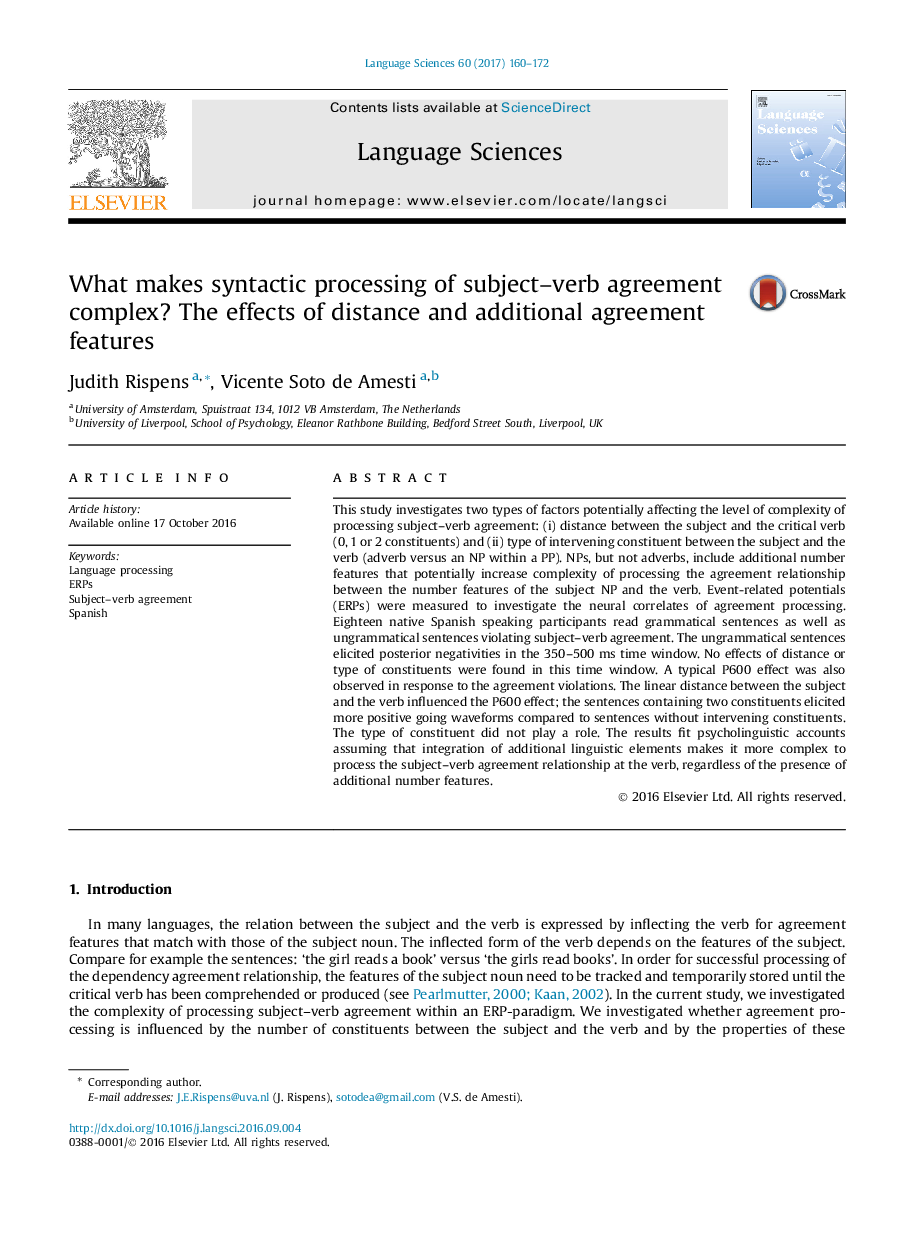| Article ID | Journal | Published Year | Pages | File Type |
|---|---|---|---|---|
| 5124569 | Language Sciences | 2017 | 13 Pages |
â¢Linear distance influences processing the dependency relationship between subject and verb.â¢Adjacent subjects and verbs are perceived more accurately than non-adjacent ones.â¢ERPs show that detecting subject-verb agreement violations is not affected by distance.â¢ERPs show that reanalyzing subject-verb agreement relations is affected by distance.
This study investigates two types of factors potentially affecting the level of complexity of processing subject-verb agreement: (i) distance between the subject and the critical verb (0, 1 or 2 constituents) and (ii) type of intervening constituent between the subject and the verb (adverb versus an NP within a PP). NPs, but not adverbs, include additional number features that potentially increase complexity of processing the agreement relationship between the number features of the subject NP and the verb. Event-related potentials (ERPs) were measured to investigate the neural correlates of agreement processing. Eighteen native Spanish speaking participants read grammatical sentences as well as ungrammatical sentences violating subject-verb agreement. The ungrammatical sentences elicited posterior negativities in the 350-500Â ms time window. No effects of distance or type of constituents were found in this time window. A typical P600 effect was also observed in response to the agreement violations. The linear distance between the subject and the verb influenced the P600 effect; the sentences containing two constituents elicited more positive going waveforms compared to sentences without intervening constituents. The type of constituent did not play a role. The results fit psycholinguistic accounts assuming that integration of additional linguistic elements makes it more complex to process the subject-verb agreement relationship at the verb, regardless of the presence of additional number features.
